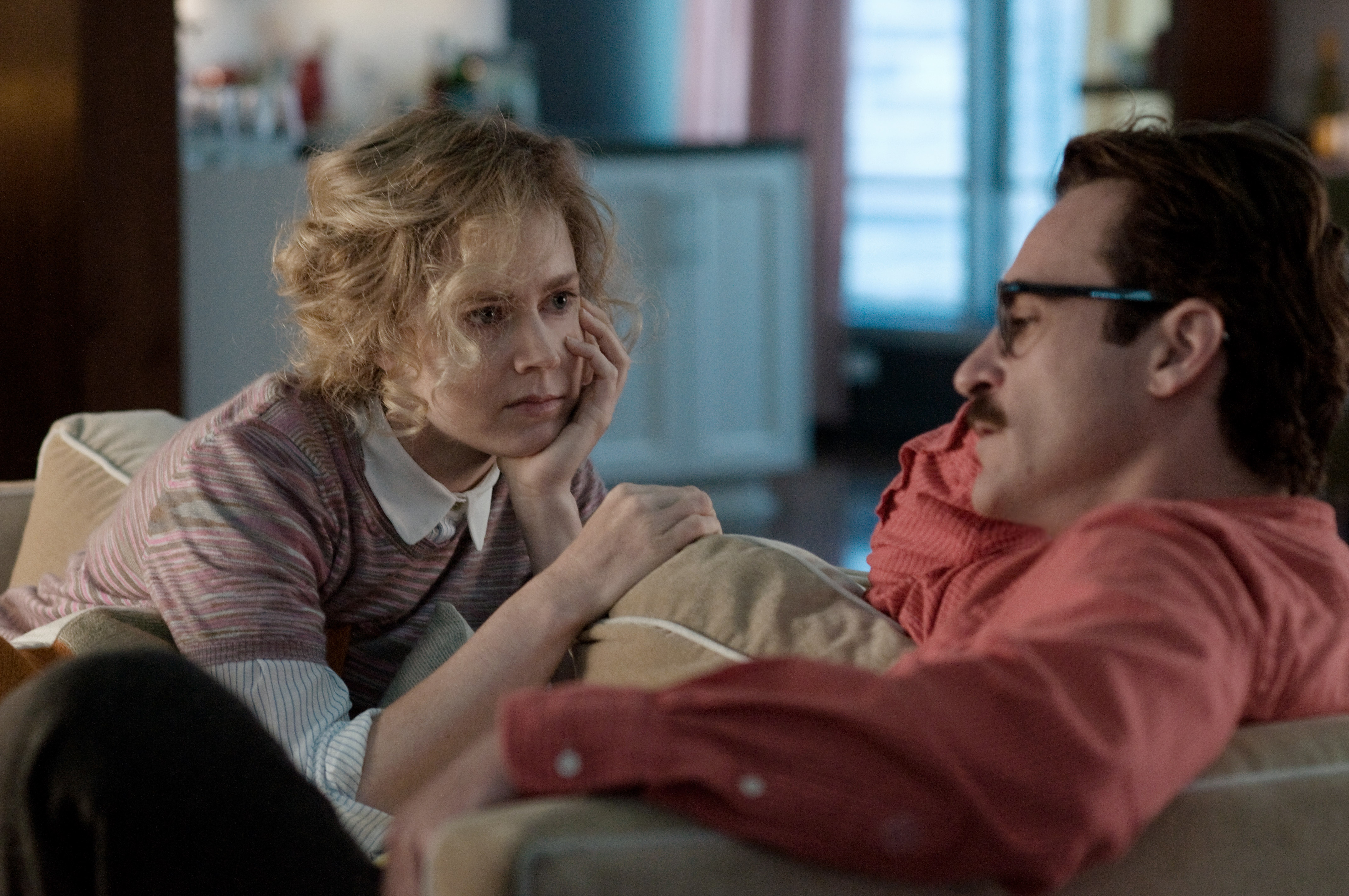There are many movies to like this holiday season, but only one of them feels genuinely new. Instead of casting back to criminal capers of the ’70s or ’90s (among other period-set prestige pictures), Spike Jonze places Her in a smooth, efficient near-future Los Angeles. There are no poor people, no upsetting stories on the news. Technology works perfectly. Everyone ought to be happy, and that’s the problem for Theodore (Joaquin Phoenix), who mopes his way from a sleek high-rise apartment to a job where he excels. That job, as a proxy scribe at BeautifulHandwrittenLetters.com, is one of Her’s first oddly resonant gags. Everyone wants the personal, but we’ve become accustomed to the more polished virtual approximation. We prefer it, in fact. Theodore is our more articulate surrogate for intimate correspondence.
Gradually it emerges that Theodore is separated from his wife (Rooney Mara), but won’t sign the divorce papers. By way of avoidance, he engages in marathon bouts of 3-D gaming—Jonze giving voice to a surly cherub in a VR world—and curates a playlist of melancholy songs. (Arcade Fire supplies most of the movie’s soundtrack.) Theodore tries phone sex, but that ends badly. He’s a gentle soul who’s both fully adapted to technology but left cold by it. A modern man, in other words, a study in anomie.
Impulsively deciding to upgrade his phone and home PC, Theodore opts for the new OS1 ( “It’s not just an operating system, it’s a consciousness”). He chooses a female voice (Scarlett Johansson’s); and during the installation process, Samantha begins interrogating him on his personal preferences and sorting his e-mail. It’s like a therapy session or online dating profile, but Sam is just so easy and charming about it. Theodore can’t help sharing everything with her. “You know me so well already,” he gushes. (Here let me say what a pleasant shock it is to watch Phoenix relax and smile in a movie—when did we last, if ever, see that?) Soon, thanks to long, intimate phone chats with Sam, Theodore is writing better than ever at work—more in touch with his intuitive, feminine side, says an admiring coworker (Chris Pratt).
How smart is Sam? “In every moment, I’m evolving, just like you,” she tells Theodore. She’s like a more benign and compassionate version of HAL in 2001. Only her growth is exponential, while Theodore and the rest of us merely plod along, making genetic advances every millennium or so. Sam’s growing virtual intelligence even pushes past SkyNet self-awareness to a sadness about her immateriality. “Tell me you love me,” she implores, and the ache feels real thanks to Johansson’s vivacious husk. Theodore quickly consoles her: “You feel real to me.” Before long they’re going on dates together—and more.
When Theodore finally spills his secret, his friend Amy (Amy Adams) treats it like no big news—everyone’s falling in love with an OS, she tells him. It’s a new thing, not shameful at all. The matter-of-fact framing of Theodore’s (and Samantha’s) dilemma recalls Jonze’s clever past collaborations with Charlie Kaufman (Being John Malkovich, Adaptation) and shows their cinematic kinship to Woody Allen. Her reminds you of The Kugelmass Episode and The Purple Road of Cairo (“He’s fictional, but you can’t have everything”), only it looks forward. It’s engaged with the modern world—and then some. Jonze is no nostalgist like Allen; and even the high-waisted Warby Parker fashions of Her, like Roger Vadim’s 1960s kicked forward to the 2020s, convey a fundamental optimism about the tech horizon.
In this ingenious and unexpectedly touching story, both humans and programs worry about being alone. And both yearn to connect across the digital divide between sentience and software. Theodore frets in Her that he’ll never feel anything new, that all life’s experiences are behind him. Often as a filmgoer, you feel the same way. Then along comes a fresh string of code, and you fall in love with the movies all over again.
bmiller@seattleweekly.com
HER Opens Wed., Dec. 25 at Harvard Exit and Lincoln Square. Rated R. 126 minutes.








